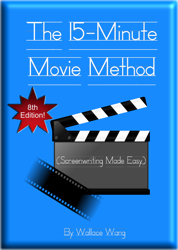Screenwriting classes almost always focus on great movies for students to study. While this can show students what makes a movie great, sometimes it’s easier to learn by watching lousy movies instead. Since Hollywood keeps making lousy movies, you’ll never run out of learning materials.
When watching lousy movies, just realize that you don’t have to watch them all the way through. That way you don’t waste two hours of your life watching a lousy movie unless you’re fascinated by just how lousy that movie can be.
In most cases what makes a movie bad is rarely the actors, the director, the cinematography, or the production quality. What almost always creates a bad movie is the weak story that no A-list actor could possibly overcome.
Study “The Ministry of Ungentlemanly Warfare” and you’ll find a slickly produced movie with A-list actors, great costumes, and decent special effects. What you won’t find is any emotional reason to care for any of the characters.
Remember, every story should be an emotional journey that forces a hero to change. In “Star Wars” we cheer for Luke to gain confidence, trust the Force, and wipe out the Death Star. In “Legally Blonde” we want to see Elle realize she’s a strong, smart, independent woman who doesn’t need to define herself by her boyfriend.
Yet in “The Ministry of Ungentlemanly Warfare”, we learn nothing about any of the characters. They start as perfectly competent people who don’t even have to break a sweat when surrounded by dozens of armed Nazis and defeating them. Because these characters face little moral dilemmas over their actions, their actions are meaningless. After seeing characters gun down their twentieth Nazi without any effort, we simply tire of seeing perfectly competent people overcoming outrageous odds and never changing one bit emotionally.
That’s a sure recipe for failure. If your hero doesn’t change, if the people your hero helps doesn’t change, then you’ve got a bad story no matter how much action you throw in the script. Watch this scene from “The Ministry of Ungentlemanly Warfare” and you’ll see lots of action, but what you won’t see is any character forced to make a tough moral decision.
Now study this scene from “Little Miss Sunshine” that may lack the gunfire and explosions from “The Ministry of Ungentlemanly Warfare”, but is far more interesting and emotionally engaging. In this scene, Olive, the hero wants to eat ice cream but her father warns her that it will make her fat and if she’s fat, she can’t win a beauty pageant.
Now Olive is forced to make a tough choice. Does she eat the ice cream because she wants it, or does she avoid the ice cream because she doesn’t want to be fat and she wants to win the beauty pageant?
Notice that the outcome of this “Little Miss Sunshine” scene is far more interesting because there are consequences in whatever Olive decides. If she eats the ice cream, she risks losing in the beauty pageant. If she refuses to eat the ice cream, she’ll miss eating something she loves.
The risks and the moral dilemma makes the “Little Miss Sunshine” scene far more emotionally engaging than the scene from “The Ministry of Ungentlemanly Warfare”.
“The Ministry of Ungentlemanly Warfare” is bad because none of the characters change or face tough moral decisions that force them to choose what type of person they want to be. If your hero doesn’t change, you literally don’t have a story.
Another lesson you can learn from lousy movies is the hero should be in control of their fate at all times. In “Mortal Engines” there’s a scene where the hero is being auctioned off as a slave. Suddenly out of nowhere, a character we’ve never seen before pops up and saves them, sparing the hero from taking any action of their own. Even when the hero is struggling to take action, we don’t know why because the hero lacks any sort of a goal. Watch this meaningless scene from “Mortal Engines” to learn what not to do.
Now watch this scene from “Die Hard” where the hero, John McClane, makes the story happen because he’s constantly taking action and his actions propel the story forward. John McClane isn’t waiting for others to rescue him, especially characters who pop up out of nowhere for the sole purpose of saving him. Instead, John McClane, like all heroes, should be in control of their destiny and define the story.
Heroes take action or react to the villain, but they’re always taking action. That’s what’s missing in “Mortal Engines” where the hero is largely passive and waiting for others to save them.
So pick your favorite lousy movies and watch them to see what makes them lousy. Just watch a scene or two and you can spot the problems. Here’s the final fight scene from another lousy movie, “The 355” where all the women are generic with no unique emotional background or goals of their own. Every woman is just a bad ass, highly competent secret agent.
Watch this scene and notice if you care what happens to the hero. If not, then you probably won’t care about the hero either for the entire movie.
Lousy movies are lessons of what not to do so learn from the best lousy examples and write a better screenplay instead.
Sign up to take a FREE course about how to write scenes in a screenplay.

